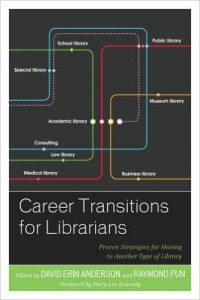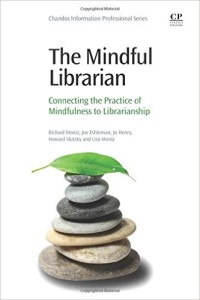by infonistaadmin | Jul 25, 2016 | LIS Career Options, LIS Career Strategy
 Want to find out more about a company, industry, or career path? (This is definitely something you want to do as often as possible while you’re going through your degree program or growing your LIS career.)
Want to find out more about a company, industry, or career path? (This is definitely something you want to do as often as possible while you’re going through your degree program or growing your LIS career.)
It’s tough to beat the “insider information” and insights you can get from a good informational interview. But because you’re asking someone to give up some of their time for you, it’s important to be focused and thoughtful during the time they spend with you. That means you want to think about your questions well in advance so you can not only come up with thoughtful questions but also think about good follow-ups to your interviewee’s answers. (more…)
by infonistaadmin | Jul 11, 2016 | Career Profiles, LIS Career Options, LIS Career Strategy
 How often have you heard the often-repeated statement that if you’re an “ABC librarian,” you’ll never be able to transition into being an “XYW librarian?” As in, if you’re a public librarian, you’ll never be able to get a job in academia, or special libraries. If you’re in a corporate library, you’d never be considered for school or public.
How often have you heard the often-repeated statement that if you’re an “ABC librarian,” you’ll never be able to transition into being an “XYW librarian?” As in, if you’re a public librarian, you’ll never be able to get a job in academia, or special libraries. If you’re in a corporate library, you’d never be considered for school or public.
Among the grad students I work with, this silo effect is such an accepted fact of life that it causes them to overweight the importance of every early-career decision they make.
But is it true?
Not according to the more than three dozen LIS professionals who’ve contributed their career-transition success stories to Career Transitions for Librarians: Proven Strategies for Moving to Another Type of Library. (more…)
by infonistaadmin | Jul 4, 2016 | LinkedIn and Your Career, Professional Branding
 Recently a grad student asked me how to write a headline or tagline for her LinkedIn profile that didn’t sound hopelessly vague or nondescript. Her valid concern was that as a student she didn’t really have a job title to point to, or an extensive “work persona.” I thought about it, realized I had no clue what to suggest, and promised to get back to her after doing some research post-webinar.
Recently a grad student asked me how to write a headline or tagline for her LinkedIn profile that didn’t sound hopelessly vague or nondescript. Her valid concern was that as a student she didn’t really have a job title to point to, or an extensive “work persona.” I thought about it, realized I had no clue what to suggest, and promised to get back to her after doing some research post-webinar.
What I discovered was that although almost no one takes advantage of this profile feature, it’s actually pretty easy to do once you’ve figured out the basic approach. Whether you’re an LIS student, recent graduate, or established professional, the following steps should help you develop a terrific headline. (more…)
by infonistaadmin | Jun 20, 2016 | Job Hunting, LIS Career Options, LIS Career Strategy, LIS Students
 Anytime you’re asking a favor of someone, it feels a bit awkward, and information interviews are no exception.
Anytime you’re asking a favor of someone, it feels a bit awkward, and information interviews are no exception.
Generally, you’re asking someone who’s both successful in their career and really busy to give you their time and attention out of the goodness of their heart. (Okay, occasionally for a cup of coffee or a quickie lunch….) Yep, that usually triggers our automatic “do not impose on people” response, but it’s time to get over your hesitation. Why? Because informational interviews for which you’ve done your homework can be one of the most effective ways to advance both your career knowledge and your career (think network building and professional visibility) ever. (more…)
by infonistaadmin | May 30, 2016 | Job Hunting, LIS Career Options
 Whether you’re a student soon to graduate and getting ready to hit the job market, an employed professional seeking to make a job change, or a now-unemployed practitioner trying to identify or create new opportunities, LIS job hunting can be an adventure (feel free to substitute your preferred adjective here).
Whether you’re a student soon to graduate and getting ready to hit the job market, an employed professional seeking to make a job change, or a now-unemployed practitioner trying to identify or create new opportunities, LIS job hunting can be an adventure (feel free to substitute your preferred adjective here).
According to David E. Perry, co-author of Guerrilla Marketing for Job Hunters 3.0: How to Stand Out from the Crowd and Tap into the Hidden Job Market Using Social Media and 999 Other Tactics Today (Jay Conrad Levinson, co-author, Wiley, 2011), “Every job search is a sales and marketing campaign.”
Although, generally speaking, sales and marketing don’t come naturally to LIS students and professionals, if you approach looking for the right job as a process to move you from point A to point B (okay, and include some sales and marketing), both the job search – and your spirits – may improve. (more…)
by infonistaadmin | May 23, 2016 | LIS Career Strategy, LIS Students
 Recently New York Times columnist David Brooks wrote about “The Choice Explosion,” or the increasing number of choices we have regarding every aspect of our lives. The research he cites confirms the tendency of Americans to prefer a high level of independent, personal choice. And in many ways, we’re no different when it comes to our careers. (more…)
Recently New York Times columnist David Brooks wrote about “The Choice Explosion,” or the increasing number of choices we have regarding every aspect of our lives. The research he cites confirms the tendency of Americans to prefer a high level of independent, personal choice. And in many ways, we’re no different when it comes to our careers. (more…)
by infonistaadmin | May 16, 2016 | LIS Career Strategy, LIS Students, Professional Development
 Recently I gave a talk to the Rocky Mountain SLA chapter on adaptive competence. It’s basically the ability to repurpose if not reinvent your LIS career (pretty much on demand) as market needs and opportunities require. Your adaptive competence is built on a core understanding that regardless of your current paycheck, we’re all self-employed – it’s up to us to take charge of our options and outcomes.
Recently I gave a talk to the Rocky Mountain SLA chapter on adaptive competence. It’s basically the ability to repurpose if not reinvent your LIS career (pretty much on demand) as market needs and opportunities require. Your adaptive competence is built on a core understanding that regardless of your current paycheck, we’re all self-employed – it’s up to us to take charge of our options and outcomes.
One of my recommendations for building adaptive competence, also known as career resiliency, was to find your tribe. Although marketing guru Seth Godin popularized the phrase in his Tribes: We Need You to Lead Us (Portfolio, 2008), Godin’s focus was on leading movements. With apologies to Godin, I’m going to redefine and repurpose it here (clear tip-off to my content-developer roots!) to describe a tribe as that group of people who make up your career inner circle. (more…)
by infonistaadmin | May 9, 2016 | Job Hunting, LIS Career Strategy, LIS Students
 When you’re trying to learn more about potential LIS jobs, employers, or careers, few options are better than going straight to the source, otherwise known as having an information interview. They’re one of the easiest and fastest ways to increase your career smarts – even when you’re not looking for a job. Why? Because these informal conversations can provide the perfect “reality check” for what you may have read or heard about a particular employer, industry, or career path – an insider’s view of how the world really looks from those in the trenches.
When you’re trying to learn more about potential LIS jobs, employers, or careers, few options are better than going straight to the source, otherwise known as having an information interview. They’re one of the easiest and fastest ways to increase your career smarts – even when you’re not looking for a job. Why? Because these informal conversations can provide the perfect “reality check” for what you may have read or heard about a particular employer, industry, or career path – an insider’s view of how the world really looks from those in the trenches.
To max out the benefit of any information interview, however, you want to make sure you do these five things: (more…)
by infonistaadmin | May 2, 2016 | Education Options, Professional Development
 Ever since Darwin nailed the whole ‘adaptability equals survivability’ thing, it’s been pretty clear that being able to navigate changing circumstances was going to be critical to… well, just about everything. What was once a scientific premise is now also key to career resiliency.
Ever since Darwin nailed the whole ‘adaptability equals survivability’ thing, it’s been pretty clear that being able to navigate changing circumstances was going to be critical to… well, just about everything. What was once a scientific premise is now also key to career resiliency.
Translation: learn fast, learn effectively, be able to learn on demand. (more…)
by infonistaadmin | Apr 25, 2016 | Creating a Rewarding Career
 How are we to teach our students to pay attention if we have not considered this more deeply ourselves? How do we better model mindful behavior and a thoughtful, caring, and contemplative approach to life?
How are we to teach our students to pay attention if we have not considered this more deeply ourselves? How do we better model mindful behavior and a thoughtful, caring, and contemplative approach to life?
This is the question posed by co-author Richard Moniz in the introduction to The Mindful Librarian: Connecting the Practice of Mindfulness to Librarianship. It’s also the essence of why the five authors of this fascinating guide chose to interweave the recent findings on mindfulness into the daily life of library work. By understanding how to be more mindful ourselves, we can become both better librarians and better – happier, more present, more engaged – human beings. (more…)
 Want to find out more about a company, industry, or career path? (This is definitely something you want to do as often as possible while you’re going through your degree program or growing your LIS career.)
Want to find out more about a company, industry, or career path? (This is definitely something you want to do as often as possible while you’re going through your degree program or growing your LIS career.)








